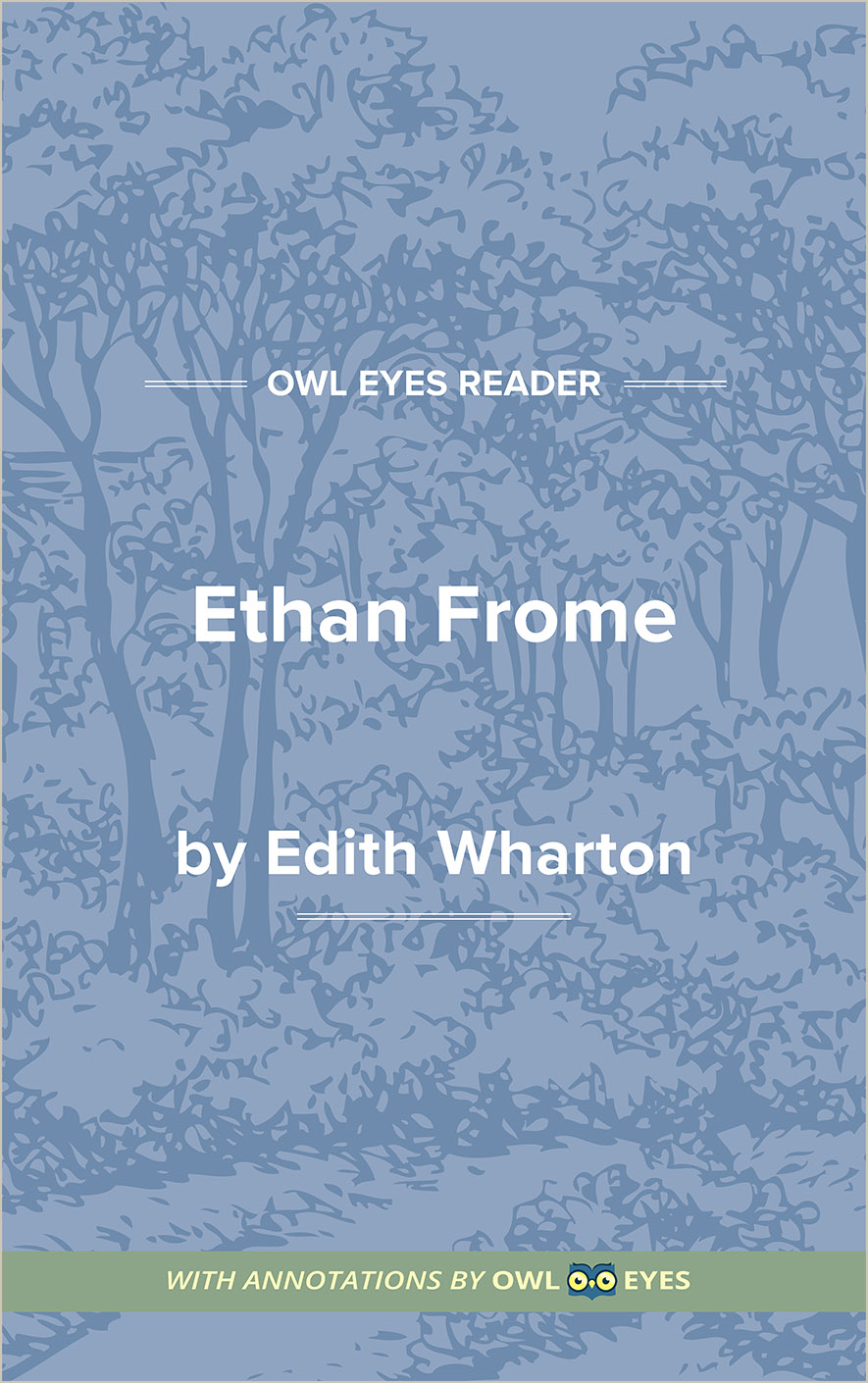Analysis Pages
Themes in Ethan Frome
Obligations as Desire’s Obstacles: For Ethan, his wants are constantly at odds with the duties—mainly to Zeena—he believes he is bound to carry out. Before his marriage, Ethan was an ambitious, intelligent man who hoped to study engineering or science, and Zeena was a talkative, caring young woman. Ethan’s studies are cut short when he must return to care for his ailing parents. Soon after marrying, the necessity of staying in Starkfield, due to their poverty and unsellable farm, overwhelms both of them as they lapse into frustrated silence. Though neither is happy, neither is willing to do anything out of the ordinary to alleviate their suffering. Throughout the story, Ethan’s path to happiness is clear: leaving Starkfield with Mattie. However, constant reminders of his marital obligations to Zeena—Andrew Hale’s wife praising Ethan’s care of Zeena, for example—keep Ethan from acting on his desires.
Passive Indecision as Imprisonment: Throughout the novel, it is clear that Ethan is unable to take control of his life’s direction. Rather than actively pursue happiness and change, Ethan wavers between options, always choosing to maintain the status quo. As a result, the tone of the Fromes’ marriage is bleak acceptance and frustrated miscommunication rather than marital bliss. Nowhere is Ethan’s indecision more obvious than in the novel’s climactic sled run. Mattie seems to have convinced Ethan to take control of his life back by ending both of theirs together; however, as they hurtle toward the tree, the memory of Zeena’s face causes him to swerve off course. Instead of dead, they are maimed, together but confined to one another’s miserable company.
Themes Examples in Ethan Frome:
Prologue
🔒"found myself anchored..." See in text (Prologue)
"“It used to.”..." See in text (Prologue)
"been in Starkfield too many winters..." See in text (Prologue)
Chapter I
🔒"insubstantial shade..." See in text (Chapter I)
"creature to whom he could say..." See in text (Chapter I)
"cold fires..." See in text (Chapter I)
Chapter II
🔒"empty expanse..." See in text (Chapter II)
Chapter III
🔒"“drug” business..." See in text (Chapter III)
"blew out the light so that he should not see her..." See in text (Chapter III)
Chapter V
🔒"But that had been out-of-doors, under the open irresponsible night. Now, in the warm lamplit room, with all its ancient implications of conformity and order..." See in text (Chapter V)
Chapter VIII
🔒"He was a prisoner for life..." See in text (Chapter VIII)
Chapter IX
🔒"He went about his task without knowing what force directed him, or whose hands and feet were fulfilling its orders...." See in text (Chapter IX)

